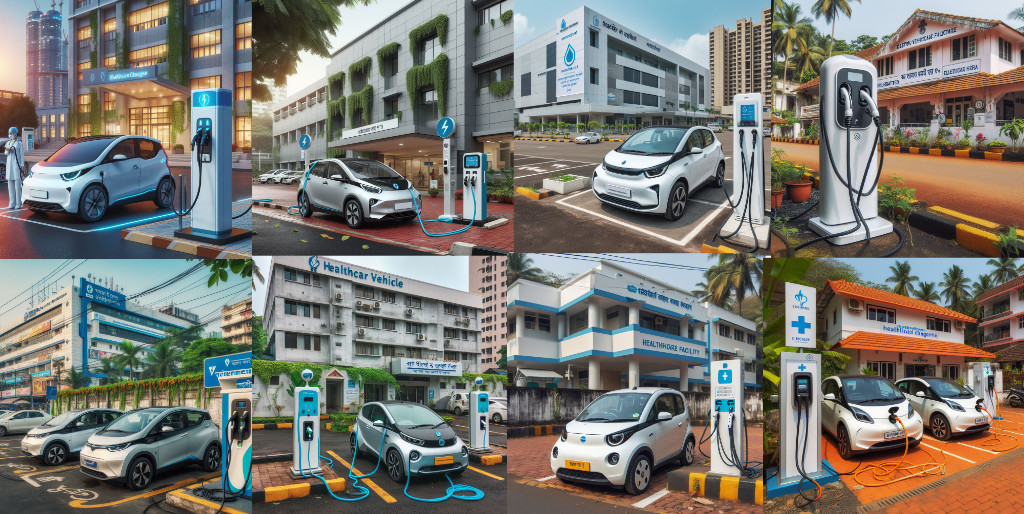
EV Charging Solutions for Healthcare Facilities: Electric vehicles (EVs) are becoming more popular in India due to their environmental and economic benefits. However, one of the main challenges for EV owners is finding a convenient and reliable place to charge their vehicles. This is especially true for people who need to visit hospitals and healthcare facilities, either as patients, visitors, or staff. Installing electric vehicle chargers in hospitals and healthcare facilities can not only help the EV owners, but also the hospitals and healthcare facilities themselves, as well as the society at large. Here are some of the advantages of installing electric vehicle chargers in hospitals and healthcare facilities:
Patient-centered care and convenience: By providing electric vehicle chargers, hospitals and healthcare facilities demonstrate their commitment to patient-centered care. Patients and their families who own electric vehicles often face challenges in finding charging stations while seeking medical treatment or visiting loved ones. Reliable and easy-to-use electric vehicle chargers on site ensures that patients can conveniently charge their vehicles during their stay, easing the burden on patients and their families.
Employee satisfaction and retention: The healthcare sector relies heavily on dedicated medical professionals who work tirelessly to provide quality care. Providing electric vehicle chargers for healthcare staff sends a clear message: the hospital values their well-being and is invested in their efforts toward a more sustainable future. This commitment can increase job satisfaction, leading to higher retention rates and making the hospital a more attractive workplace for prospective employees.
Cost savings and revenue generation: While the initial investment in electric vehicle charging infrastructure might seem significant, hospitals stand to gain long-term financial benefits. Hospitals can generate revenue by offering charging services to patients, visitors, and the general public. These funds can be reinvested into patient care, medical research, or other critical hospital initiatives. Additionally, the operational cost of electric vehicles is lower compared to traditional internal combustion engine vehicles, offering hospitals potential savings on transportation expenses for hospital-owned vehicles.
Community engagement and education: Hospitals are more than just medical facilities – they are important parts of the communities they serve. By incorporating electric vehicle charging infrastructure, hospitals create a platform for community engagement and education. The presence of charging stations can spark conversations about sustainable transportation, encouraging patients, visitors, and staff to consider the potential impact of switching to an EV. Hospitals can also organize workshops and events to educate the community about the benefits of electric vehicles and clean energy.
Environmental impact: Installing electric vehicle chargers can also have a positive impact on the environment. By encouraging the use of electric vehicles, hospitals can reduce the emission of harmful pollutants and improve air quality in the surrounding area. This can also benefit the health of patients, visitors, staff, and residents who may suffer from respiratory or cardiovascular diseases caused by air pollution. Moreover, hospitals can support the national goal of achieving 30% EV penetration by 2030, which would reduce India’s dependence on fossil fuels and greenhouse gas emissions.
In conclusion, installing electric vehicle chargers in hospitals and healthcare facilities would have multiple benefits for the EV owners, the hospitals and healthcare facilities, and the society at large. It would provide patient-centered care, employee satisfaction, cost savings, community engagement, and environmental impact for all parties involved. Therefore, it is advisable for hospitals and healthcare facilities to consider investing in electric vehicle charging infrastructure as soon as possible.
